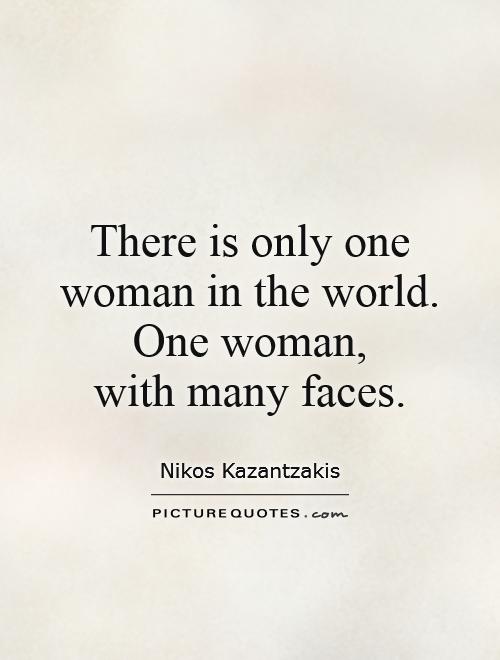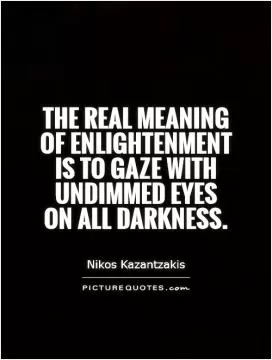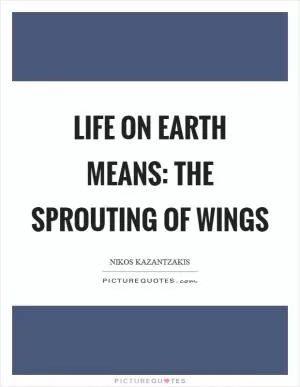There is only one woman in the world. One woman, with many faces

There is only one woman in the world. One woman, with many faces
Nikos Kazantzakis, the renowned Greek writer and philosopher, is known for his deep exploration of the human condition and the complexities of existence. In his works, he often delves into the nature of women and their multifaceted identities. The quote "There is only one woman in the world. One woman, with many faces" encapsulates Kazantzakis' profound understanding of the female experience and the diverse roles that women play in society.Kazantzakis' portrayal of women in his writings is nuanced and multifaceted. He recognizes that women are not monolithic beings, but rather individuals with a range of emotions, desires, and experiences. In his novel "Zorba the Greek," for example, the character of Madame Hortense embodies the complexities of womanhood. She is a widow who runs a brothel, yet she is also a sensitive and compassionate woman who longs for love and connection. Through Madame Hortense, Kazantzakis challenges traditional notions of femininity and explores the contradictions and complexities of women's lives.
The idea that there is only one woman in the world, with many faces, suggests that women are not defined by a single identity or role. They are capable of embodying a multitude of personas and experiences, each one unique and valid in its own right. Kazantzakis' exploration of the female psyche reflects his belief in the inherent complexity and richness of human nature.
Furthermore, Kazantzakis' portrayal of women is often imbued with a sense of reverence and awe. He recognizes the strength, resilience, and beauty of women, and celebrates their ability to navigate the challenges of life with grace and dignity. In his works, women are not mere objects of desire or passive bystanders, but active participants in the unfolding drama of existence.












 Friendship Quotes
Friendship Quotes Love Quotes
Love Quotes Life Quotes
Life Quotes Funny Quotes
Funny Quotes Motivational Quotes
Motivational Quotes Inspirational Quotes
Inspirational Quotes